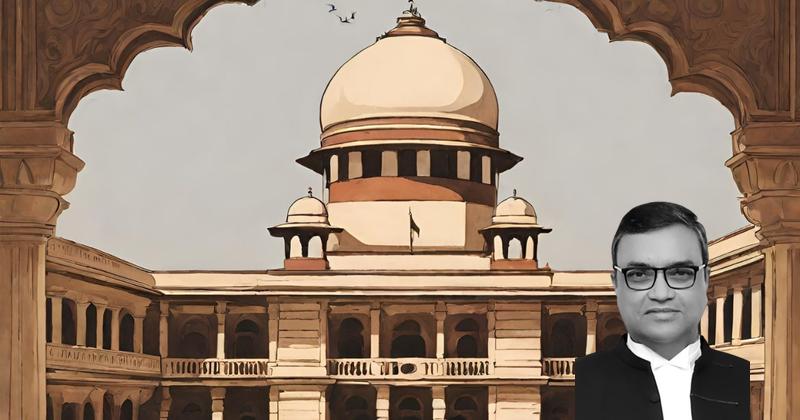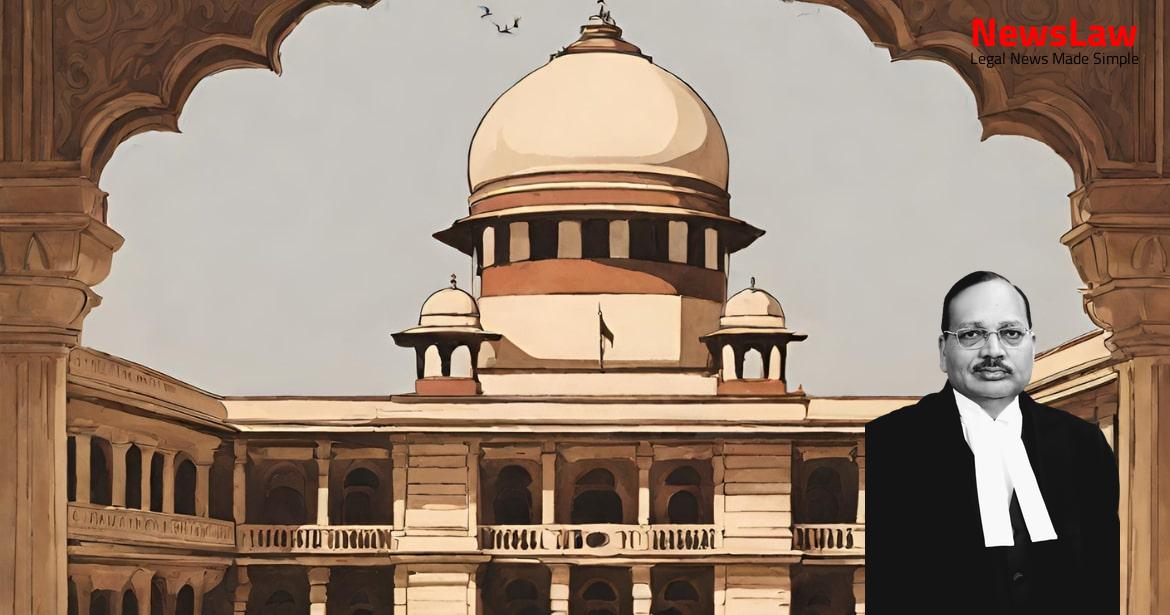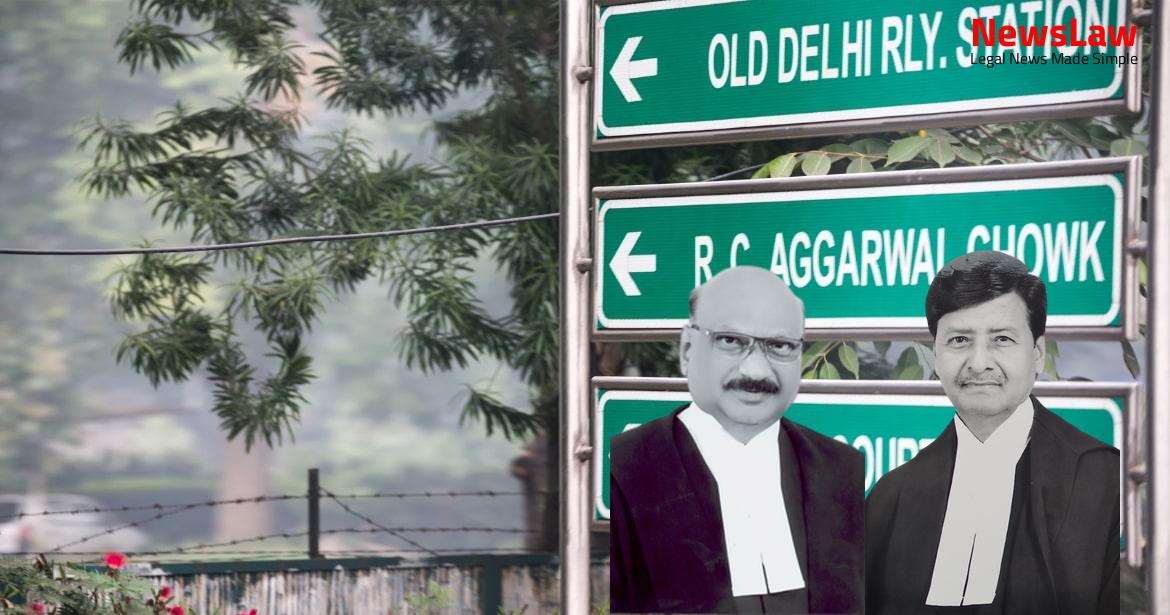Mammu Haji leased two shop rooms (numbered as municipal numbers VII/214 and VII/215- hereafter “the premises”), 2 long ago (in 1916), before the coming into force of the Wakf Act. There was an existing dispute even between the legal heirs of Mammu Haji whether there was a Wakf or a trust. This was decreed; but in revision proceedings, the Kerala High Court ruled that the Wakf Tribunal lacked jurisdiction and the appellants could be evicted only through a civil proceeding before a competent civil court.
Also Read: https://newslaw.in/supreme-court/legal-analysis-of-claim-for-loss-of-profit-in-delayed-contract/
However, on the question of the plaintiff’s competence to seek injunction (before the tribunal) regarding specific tenanted properties, the court observed, “ on behalf of the Wakf, against the defendant is a matter which will have to be independently considered and decided ” as it was a “ vexed ” question 4 of fact and law which could not be decided in a proceeding under Order 39, Rules 1 and 2 of the Code of Civil Procedure.
The “Board” was defined as follows: [Section 3 (c)]: “c) “Board” means a Board of Waqf established under sub-section (1), or as the case may be, under sub-section (2) of section 13 and shall include a common Waqf Board established under section 106” Some of the new provisions, inter alia, inserted by the amendment- including Section 52A and Section 54, read as follows: “52A. (3) No court shall take cognizance of any offence under this section except on a complaint made by the Board or any officer duly authorised by the State Government in this behalf.
(4) The Tribunal, upon receipt of such application from the Chief Executive Officer, for reasons to be recorded therein, make an order of eviction directing that the waqf property shall be vacated by all persons who may be in occupation thereof or any part thereof, and cause a copy of the order to be affixed on the outer door or some other conspicuous part of the waqf property: Provided that the Tribunal may before making an order of eviction, give an opportunity of being heard to the person against whom the application for eviction has been made by the Chief Executive Officer. (5) If any person refuses or fails to comply with the order of eviction within forty-five days from the date of affixture of the order under sub- section (2), the Chief Executive Officer or any other person duly authorised by him in this behalf may evict that person from, and take possession of, the waqf property.
As per Section 52A (3) of the Act, no court shall take cognizance of any offence under this section except on a complaint made by the Board or any officer duly authorised by the State Government in this behalf.
The newly inserted provision, i.e., Section 52A makes “taking possession of waqf properties” a punishable offence. Learned counsel relied upon Article 20 (1) of the Constitution of India and submitted that the appellants ’ conduct cannot be treated as an offence, even if Section 52A were to be applicable. It was urged by the respondents that the premises were leased to the appellants without obtaining prior sanction of the Board on 15.09.1973 for a period of 11 months by the then Managing Trustee Mr. The Wakf Act, 1954 was a precursor to the enactment of the Wakf Act, 1995. v Sugra Humayun Mirza Wakf
as “Wakfs and matters relating thereto were for a long time governed by the Wakf Act, 1954.
Repeated amendments to the 1954 Act, having failed to provide effective answers to the questions that kept arising for consideration, the Parliament had to bring a comprehensive legislation in the form of Wakf Act 1995 for better administration of wakfs and matters connected therewith or incidental thereto. Chapter IX is a miscellaneous chapter that confers power on the Central Government to regulate the secular activities of wakfs and empowers the State Government to issue directions apart from other provisions like establishment and reorganization and establishment of boards.” The appellants contend that their continued occupation and repeated yet unsuccessful attempts by the respondents to oust them from possession do not render their continuance in the premises any less lawful and that the amendment of 2013 cannot be construed as operating retrospectively; else, it would transgress 10 their right under Article 20 (1) of the Constitution. However, over the years of the working of the Act, there has been a widespread feeling that the Act has not proved effective enough in improving the administration of auqaf. The Joint Parliamentary Committee on Waqf in its Third Report presented to the Rajya Sabha on the 4th March, 2008 made re commendations for a wide range of amendments relating to time bound survey of waqf properties, prevention and removal of encroachments, making the Central Waqf Council a more effective and meaningful body, provisions for development of waqf properties, etc. He was restrained by an order for a period of five years from associating with any corporate body in accessing the securities market; he had also been prohibited from buying, selling or dealing in securities for five years.
The injunction against punishing anyone for conduct which was not an offence when it was committed, by an enactment, which creates one, subsequently, with retrospective effect is enacted in our Constitution as a Fundamental Right [Article 20 (1) ].
There can be no doubt as to the paramount importance of the principle that such ex post facto laws, which retrospectively create offences and punish them are bad as being highly inequitable and unjust.” Speaking about the same provision, this court held in T. Bull, 1 L Ed 648 : 3 US 386 (1798)] “must necessarily be retrospective, but every retrospective law is not an ex post facto law. But I do not consider any law ex post facto within the prohibition that mollifies the rigour of the criminal law, but only those that create or aggravate the crime, or increase the punishment or change the rules of evidence for the purpose of conviction…. This court interpreted Section 24 as imposing an obligation (of providing the amenity) in presenti, after coming into force of the enactment: “Is it enough that this essential supply should have been “enjoyed” by the tenant at any past time, however remote, or that it should have been “enjoyed” at any time after the coming into effect of the Act? If, on the other hand, the Section were construed in the sense that the supply should have been “enjoyed” at some time in the remote past, that is, before the Act was enforced, the act of the landlord, when it was committed, may not have been penal; but the same act would become penal on the coming into effect of the Act. Another one was commenced and was pending after it came into force.
Therefore, the expression “ Whoever alienates or purchases or takes possession of ”, which is the opening phrase of Section 52A, cannot be read or construed to include possession taken in the past, which resulted in continued possession, when the provision was enacted. It is a matter of record that by an order dated 27.10.2020, the Kerala High Court quashed the order of the CEO of the respondent allowing a revision petition and setting aside the eviction of the tenant.
The appeal is allowed but without order on costs.
Case Title: P.V. NIDHISH Vs. KERALA STATE WAKF BOARD (2023 INSC 452)
Case Number: Crl.A. No.-000309-000309 / 2023



